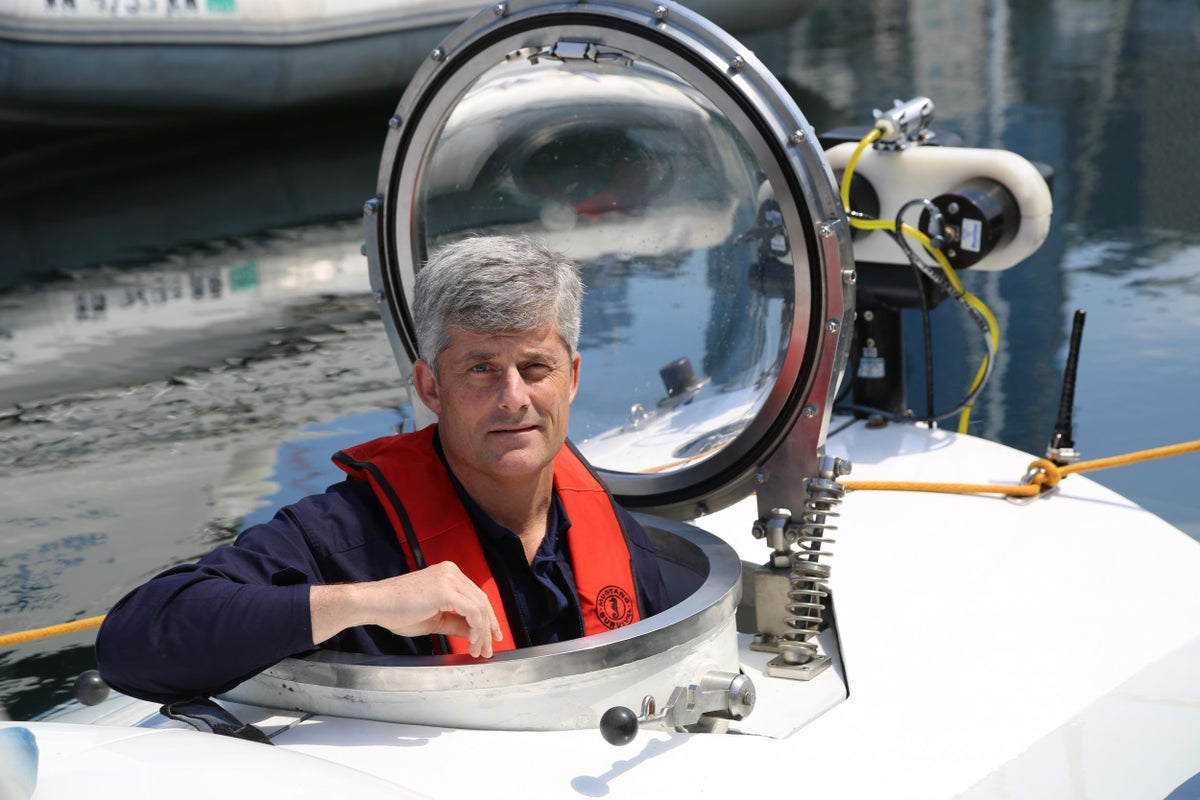
A former OceanGate employee warned safety concerns with the company’s Titanic submersible could have deadly consequences in an ominous ego calling out CEO Stockton Rush’s “ego”.
David Lochridge, OceanGate’s director of marine operations from 2015 to 2018, was asked by Rush to conduct a quality inspection after safety issues with the Titan were raised. During this process, Mr Lochridge “identified numerous issues that posed serious safety concerns” but he was allegedly “met with hostility and denial of access” to necessary documents, according to a lawsuit he brought in 2018 after he was terminated.
Bombshell emails reported by The New Yorker show Mr Lochridge’s desperate attempts to expose safety issues with the Titan, five years before it imploded while on a 12,500-foot dive to the wreck of the Titanic with five passengers, including Rush, aboard last month.
“I don’t want to be seen as a Tattle tale but I’m so worried he kills himself and others in the quest to boost his ego,” Mr Lochridge wrote in an email to expedition leader and dive master Rob McCallum. “... I would consider myself pretty ballsy when it comes to doing things that are dangerous, but that sub is an accident waiting to happen.”
“There’s no way on earth you could have paid me to dive the thing,” another email by Mr Lochridge read.
Mr McCallum reportedly passed down those concerns to Rush, who brushed them off.
“As much as I appreciate entrepreneurship and innovation, you are potentially putting an entire industry at risk,” Mr McCallum wrote to Rush in March 2018, according to emails obtained by CNN. “I implore you to take every care in your testing and sea trials and to be very, very conservative.”
After learning that Mr Lochridge had been fired, Mr McCallum asked him in an email whether he believed the “sub could be made safe to dive, or is it a complete lemon?.”
“It’s a lemon,” Mr Lochridge replied.
“You are wanting to use a prototype un-classed technology in a very hostile place,” Mr McCallum wrote again to Rush. “As much as I appreciate entrepreneurship and innovation, you are potentially putting an entire industry at risk.”
But Rush said he had “grown tired of industry players who try to use a safety argument to stop innovation and new entrants from entering their small existing market.”
“In your race to Titanic you are mirroring that famous catch cry ‘she is unsinkable,’” Mr McCallum replied, before declining a job offer made by Rush.
OceanGate CEO Stockton Rush reportedly ignored warnings about safety issues with the Titan
Mr Lochridge sent his inspection report to an Occupational Safety and Health Administration (OSHA) investigator and submitted a claim with the agency. OceanGate sent him a summons, threatening to sue Mr Lochridge and accuse him of immigration fraud if he didn’t withdraw the claim, according to The New Yorker.
Patrick Lahey, the CEO of OceanGate’s competition Triton Submarines, assumed the costs of the litigation between Mr Lochridge and OceanGate before Mr Lochridge withdrew his claim six months later.
“He didn’t consult me about that decision,” Mr Lahey told The New Yorker. “It’s not that he had to—it was his fight, not mine. But I was underwriting the cost of it, because I believed in the idea that this inspection report, which he wouldn’t share with anybody, needed to see the light of day.”
Triton’s outside counsel Brad Patrick also drafted a letter to OSHA and the Department of Labor, asking them to take “immediate and decisive action to stop OceanGate.” The letter was not sent, because Triton higher-ups were concerned the Department of Labor would see the letter as an attack on their competitor.
Debris from the Titan submersible, recovered from the ocean floor near the wreck of the Titanic, is unloaded from the ship Horizon Arctic at the Canadian Coast Guard pier in St. John's, Newfoundland, Wednesday, June 28, 2023.— (AP)
— (The Canadian Press via AP)
In the aftermath of the tragedy, mounting reports have emerged of Rush’s alleged determination to advance his company despite warnings from industry experts and OceanGate employees of safety concerns with the submersible.
In 2018, 38 members of the Marine Technology Society’s Manned Underwater Vehicles committee wrote to Rush expressing “unanimous concern” about the way Titan had been developed. According to The New York Times, the committee was alarmed that OceanGate had not subjected Titan to a standard risk assessment by Det Norske Veritas (DNV), an international maritime classification body that writes and maintains technical standards for undersea vehicles.
British billionaire explorer Hamish Harding, renowned French diver Paul-Henri Nargeolet and Pakistani businessman Shahzada Dawood and his 19-year-old son Suleman were also killed in the ill-fated expedition after the sub lost contact with its mothership on 18 June.
Large pieces of debris from Titan were transported to St John’s harbour in Newfoundland, Canada, last week by the Horizon Arctic ship. The US Coast Guard also announced that medical professionals will formally analyse presumed human remains found on the debris.
Marine authorities from the US, the UK, Canada and France have opened several probes into what led to the Titan’s malfunction.







